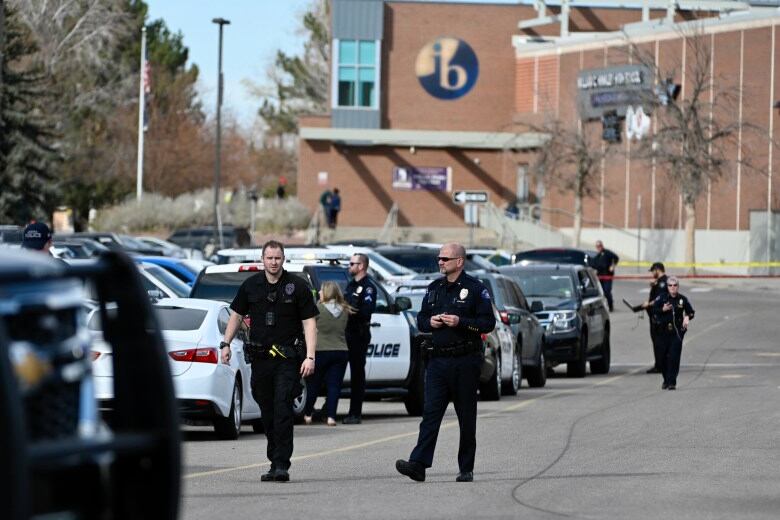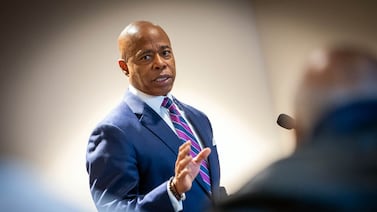Money for community-based solutions to youth violence, behavioral health services, and decriminalization of pre-teen offenses.
Those three initiatives offer a view of how Colorado Democratic lawmakers would like to curb youth violence and behavioral health issues — by addressing problems early and continuing efforts to keep children out of the justice system.
“Prevention is key,” said state Rep. Mary Young, a Greeley Democrat and former school psychologist. “What we provide to communities really can result in reduced suicidal ideation, reduced youth violence.”
She said research proves the effectiveness of early intervention.
Lawmakers feel pressure to address public safety in an election year. Violent crime rates have increased, with high-profile shootings near schools and more young people dying by gun violence.
Lawmakers previously have addressed school safety and violence. After the 2018 Parkland shooting in Florida, Colorado lawmakers designated $35 million for physical safety upgrades to school buildings, and after the 2019 STEM School shooting in Douglas County, they convened a special committee that recommended policy changes to improve information sharing and support student mental health.
This year, the push for more behavioral and mental health resources seems to be a middle ground for lawmakers.
A bipartisan school safety bill includes security infrastructure for schools. It also would fund behavioral health services. It continues the 2018 program that ended last year, though at lower funding levels.
Sponsor state Rep. Kevin Van Winkle, a Highlands Ranch Republican, said he wants the state to continue the program because it’s proven to make for safer schools and healthier kids.
“We set out to do everything possible to prevent any more school violence so kids can be kids and learn in safe environments,” Van Winkle said.
Other Republican lawmakers also support those efforts but want to put more police in schools. State Sen. Cleave Simpson, an Alamosa Republican, said that would build trust among police and communities and provide schools resources to keep kids safe.
Democratic lawmakers, who control the statehouse, have rejected the proposal.
Black and Latino caucuses especially have pushed back on the presence of police in schools. State Sen. Julie Gonzales, a Denver Democrat, told Republicans that parents and students care about school safety but don’t want police officers in the classroom.
Lawmakers say they’re refocusing on preventative measures
Lawmakers have also introduced a slate of bipartisan bills that would improve mental health services for kids and adults. Lawmakers want to use federal pandemic-relief money to increase training and services to address mental health in schools.
House Speaker Alec Garnett said the state’s struggle to fund education has meant investments in behavioral and mental health for students fell by the wayside. Superintendents and educators have called it a top priority.
“We’ve had some tough years, but you are starting to see the refocus,” Garnett said.
Those who push counseling and support versus punishment said they will help students learn from mistakes.
Taylor Pendergrass, ACLU Colorado advocacy director, supports that approach. He said it’s a much more effective strategy than a law enforcement response.
The civil liberties group supports a bill that would raise the age that children could be involved in the justice system, from 10 to 13. Opponents said the bill harms victims of violence. It narrowly passed the House Judiciary Committee after five hours of emotional testimony, two hearings, and numerous amendments.
Pendergrass said the bill includes measures that “actually make all students safer in a way that doesn’t exacerbate racial disparities.”
And the pandemic has highlighted the need for more mental health services for children. Heightened stress on kids can lead to suicidal ideation and violent behavior, advocates say.
During committee testimony, one Legend High School student told lawmakers the mental health programs help students cope with stress by saying that “it’s OK to mess up and that it’s OK not to be perfect.”
Mo Keller, Mental Health Colorado advocacy director, said during a committee meeting this week that psychological distress among youth has increased in the past two years.
Having more readily available programs can reduce mental health issues, he said, and also “reinforce the notion that it’s a sign of strength to seek help and increase the likelihood that students will connect with the services they need.”
Jason Gonzales is a reporter covering higher education and the Colorado legislature. Chalkbeat Colorado partners with Open Campus on higher education coverage. Contact Jason at jgonzales@chalkbeat.org.








